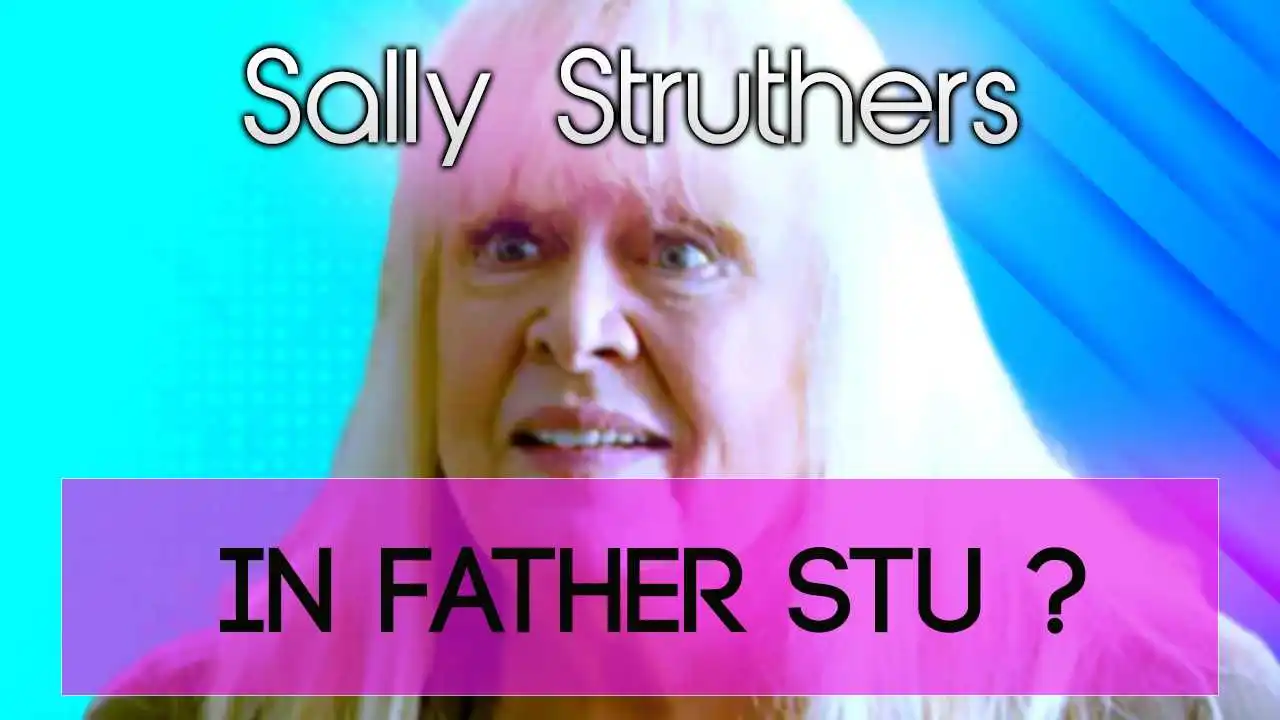You might be wondering if Sally Struthers is in the movie Father Stu. After all, she stands as an acclaimed actor, gracing the silver screen with her luminous presence and adorning the annals of television history with a series of seminal performances across the years.
The answer is no, Sally Struthers did not appear in Father Stu. However, there is a good reason for this.
The reason why Sally Struthers is not in the movie Father Stu
In the year 2019, during the inception of the movie Father Stu, Mark Wahlberg, with a discerning eye, had envisioned Struthers to embody the character of Stu’s maternal figure, Kathleen Long.
The connection between Struthers and Wahlberg had been previously nurtured through their collaborative efforts on the television production “Still Standing,” establishing a bond of considerable camaraderie.
Regrettably, circumstances compelled Struthers to decline the role, as she had previously committed herself to an alternative project.
Consequently, the spotlight shifted to another luminary for the portrayal of Kathleen Long—none other than the esteemed Jacki Weaver, whose performance exuded a resplendent brilliance in the film.
Nonetheless, one cannot help but indulge in speculation about the alternate reality where Sally Struthers graced the role with her presence.
In my estimation, Struthers would have infused the character with a profound sense of geniality and wit. Furthermore, she would have adeptly encapsulated Kathleen’s tenacity and resilience, thus contributing significantly to the film’s depth.
Let it be unequivocally stated that my intention is not to impugn the excellence of Jacki Weaver’s rendition. Her portrayal was, without a doubt, of the highest caliber.
Yet, a sense of curiosity persists—an intriguing contemplation of the artistic dimensions that would have unfurled had Sally Struthers assumed the mantle of Kathleen Long.
For enthusiasts of Sally Struthers, her thespian artistry remains accessible through an array of cinematic and television offerings. Notably, she graced the screen in recent productions such as “eVil Sublet” and “Christmas Harmony,” with her forthcoming appearance slated in “In-Security.”
While Sally Struthers did not grace Father Stu with her presence, enthusiasts can seek solace in her other illustrious cinematic ventures.
Now, turning our gaze toward the narrative tapestry of Father Stu
Father Stu unfolds as a biographical opus, chronicling the life of Stuart Long—an erstwhile pugilist who underwent a remarkable metamorphosis to emerge as a Catholic clergyman. This narrative, rooted in actual events, is epitomized by the luminous portrayal of Stu by Mark Wahlberg.
Long’s formative years were ensconced in a milieu of turmoil, ensnared within the clutches of an intemperate patriarch. Boxing, a pugnacious pursuit, served as his refuge, offering a temporary sanctuary from the torment.
Triumphing in pugilism, he scaled the heights of success. However, an incapacitating injury precipitated a crisis, thrusting him into an existential abyss.
At a pivotal juncture, Stu’s odyssey intersected with a hallowed edifice, where fervent prayers were directed heavenward for his ailing mother, besieged by the affliction of cancer. The oratory exuded by the ecclesiastic figure ignited a latent spark within Stu, impelling him to embrace the Catholic faith.
The corridors of seminary embraced him, culminating in consecration as a priest—a calling that demanded an arduous traversal, replete with trials stemming from his corporeal limitations and familial disapprobation. Undeterred, Stu clung steadfastly to his aspirations, resolutely navigating the labyrinthine path.
Father Stu unfolds as an opulent tapestry of redemption, underscored by the omnipotent force of faith. This cinematic portrayal serves as a poignant testament, elucidating the potency inherent in hope and absolution, even amidst the direst circumstances.
The contentious confluence of perspectives about Father Stu
Eliciting a spectrum of reactions, Father Stu has been ensconced within a realm of controversy, predominantly emanating from its religious themes. Detractors have decried the film as being overly dogmatic, suggestive of an overt ideological leaning.
In contradistinction, proponents have lauded its veritable candor, a narrative that resonates with a profound exploration of faith’s tenets.
In the final analysis, the resonance derived from Father Stu hinges upon the prism through which it is viewed—a reflection of one’s credence.
Should one espouse an affinity for cinema imbued with spiritual undercurrents, the film’s tapestry is likely to evoke sentiments of appreciation. On the contrary, those of a more secular disposition might discern an overt didacticism or a departure from verisimilitude.
The merit of investing one’s time in Father Stu
The prospect of immersing oneself in the celluloid realm of Father Stu beckons contemplation, serving as a subjective deliberation.
For the connoisseur seeking an evocative portrayal, steeped in themes of redemption and faith, the cinematic journey proffered by this opus is a venture worthy of pursuit. Conversely, those less inclined toward spiritual narratives might opt to forego this offering.

